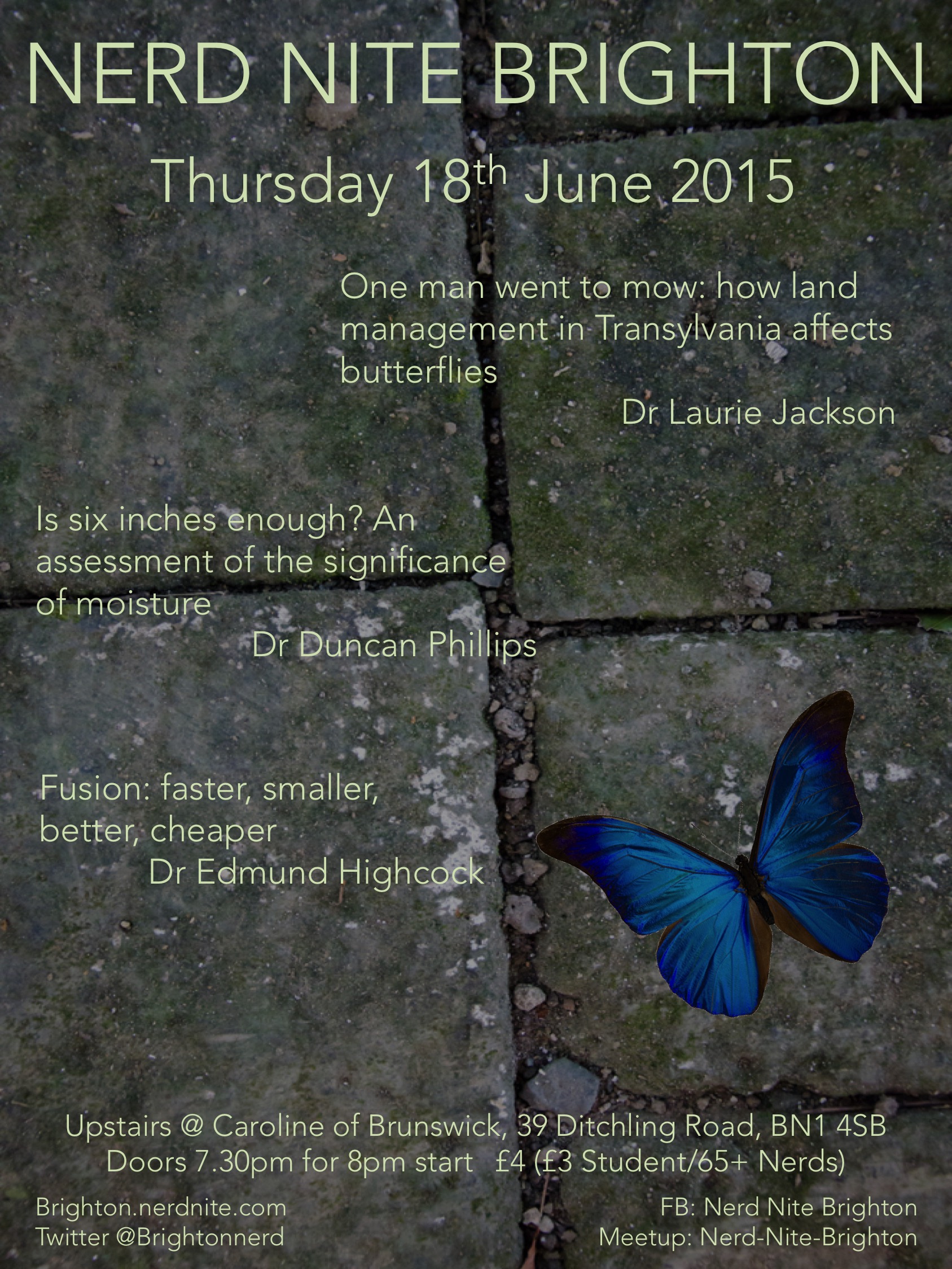Nerd Nite Brighton 20: Transylvanian butterflies, magnetic fusion and a moist six inches
There was some sort of festival happening in Brighton last month – we hope you didn’t miss us too much…
Anyway it’s far too hot outside so come and join us for another action (for nerds) packed evening.
Our talks this month:
One man went to mow: how land management in Transylvania affects butterflies – Dr Laurie Jackson
Land management change is one of the major causes of declining biodiversity. Transylvania in Romania is characterised by a traditional system of land management that has maintained a rich natural environment, including a diverse array of butterfly species. Since 2010 a team of researchers from Leuphana University of Lüneberg have been researching these ancient agricultural landscapes to identify ways in which sustainable development can be fostered in this area.
In order to develop effective conservation strategies, it is essential to understand how species use a landscape. Butterflies are a group that respond rapidly to environmental change and as such are often considered to act as an indicator species. This study in Transylvania aimed to understand the important factors in determining the richness of butterfly communities in the area, and how this should be applied to their conservation.
Laurie is an ecologist based in Sussex who never tires of learning about the natural environment. She has a range of experience from working with landowners to bat surveys and leading wildlife travel holidays. Laurie has a passion for ecological research and tries to involve herself in projects whenever someone will let her. During 2012 and 2013 she got lucky, as Jacqueline Loos of Leuphana University of Lüneberg did just that contracting her as a research assistant on a study of butterfly movements in Transylvania.
Fusion: faster, smaller, better, cheaper – Dr Edmund Highcock
Edmund is a theoretical plasma physicist at the University of Oxford who is trying to figure our how to get Magnetic Confinement Fusion (generating fusion power using magnetic fields) going.
Edmund’s three year position as a research Fellow at Magdalen College involves studying ways of eliminating turbulence from fusion plasmas and thus improving the performance of current and future fusion power generation reactors.
Is six inches enough? An assessment of the significance of moisture – Dr Duncan Phillips
Modern construction is fundamentally different to historic construction in many ways but one single fact is more significant than all the others – moisture. Modern houses are expected to be dry. Old houses are inherently damp. This presentation will look at how historic building construction has changed over the centuries, what can go wrong when houses are not looked after properly and why six inches is such an important size that really does matter.
It’s an absolute delight to welcome back Duncan, Building Surveyor extraordinare, to Nerd Nite. Some of you might remember his talk “Should the Death Star be a Listed Building?” way back in March 2014. Look forward to some more building shenanigans from the endurance athlete/Old Thumper ale enthusiast
_________________________
Quiz, cake, drinks, music as de rigeur
Tickets ONLY available online from here
Doors at 7.30pm for an 8pm start
£4 regular nerds £3 student/65+ nerds
